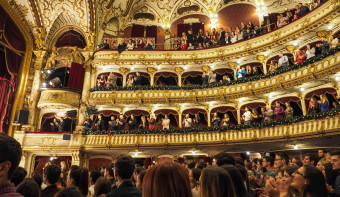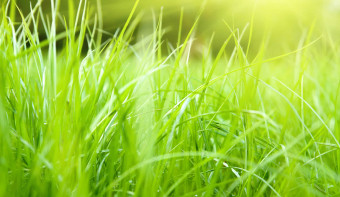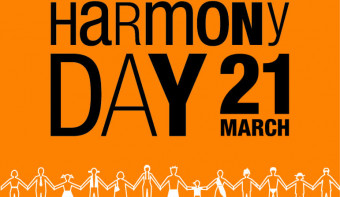About World Poetry Day
March 21st was proclaimed as World Poetry Day by UNESCO in 1999, this annual event serves as a global tribute to the boundless power of poetic expression. It is a day to honor the timeless craft of weaving words into verses, capturing the essence of life, and inspiring countless hearts and minds.
Poetry holds a unique place in human culture, transcending boundaries of language, culture, and geography. From ancient epics to modern spoken word performances, poetry has served as a vehicle for expressing emotions, exploring ideas, and illuminating the human experience in all its complexities. Whether written or spoken, traditional or experimental, poetry has the ability to evoke profound emotions, provoke thought, and spark change.
At the heart of World Poetry Day is the recognition of poets as visionaries and wordsmiths who possess the remarkable ability to distill the essence of life into verse. Through their mastery of language, poets offer us new perspectives, challenge our assumptions, and invite us to see the world through fresh eyes. Their words have the power to comfort the weary soul, ignite the flames of revolution, and celebrate the beauty of existence.
This annual celebration serves as a reminder of the importance of poetry in our lives and communities. It encourages individuals to explore their creativity, embrace their unique voices, and engage with the world poetically. World Poetry Day also seeks to promote linguistic diversity and cultural exchange by showcasing the rich tapestry of poetic traditions from around the globe.
In classrooms, libraries, and cultural institutions worldwide, World Poetry Day is marked with a variety of events and activities. Poetry readings, workshops, competitions, and performances provide opportunities for poets and poetry enthusiasts to come together, share their work, and celebrate the enduring legacy of this art form. Through these collective celebrations, World Poetry Day fosters a sense of unity and connection among people of all backgrounds, fostering a deeper appreciation for the beauty and power of words.
Moreover, World Poetry Day serves as a call to action, urging us to recognize the importance of nurturing creativity and artistic expression in society. In an increasingly fast-paced and digital world, where attention spans are fleeting and communication is often reduced to soundbites, poetry reminds us to slow down, savor the moment, and listen to the whispers of the soul.
As we commemorate World Poetry Day, let us reaffirm our commitment to preserving and promoting the art of poetry. Let us celebrate the poets who have enriched our lives with their words and inspired us to see the world with wonder and empathy. And let us embrace the beauty of language as a powerful force for connection, understanding, and transformation in our shared human experience.
Different Types of Poetry
Poetry, with its rich history and boundless creativity, encompasses a multitude of forms, each with its own unique structure, rhythm, and style. From traditional forms that have endured for centuries to experimental styles that push the boundaries of language and expression, the world of poetry is as diverse as the human experience itself.
Let's delve into some of the most common types of poetry, each offering its distinct beauty and charm.
Sonnet: One of the most recognizable forms of poetry, the sonnet originated in Italy and flourished during the Renaissance. Typically composed of 14 lines, a sonnet follows a strict rhyme scheme and often explores themes of love, beauty, and mortality. The two most well-known types of sonnets are the Petrarchan (or Italian) sonnet, characterized by an octave and a sestet, and the Shakespearean (or English) sonnet, with three quatrains and a final rhymed couplet.
Haiku: Originating in Japan, the haiku is a brief and evocative form of poetry consisting of three lines with a syllable pattern of 5-7-5. Haiku often captures fleeting moments in nature and seeks to evoke a sense of awe and wonder. Traditionally, haiku focus on images from the natural world and employ juxtaposition and sensory language to convey deeper truths about life and existence.
Free Verse: In contrast to formal poetic forms, free verse offers poets complete freedom from traditional structure and rhyme. Instead, free verse relies on the poet's intuition and creativity, allowing for a fluid and organic expression of thoughts and emotions. Free verse poems often experiment with line breaks, rhythm, and imagery to create a sense of spontaneity and authenticity.
Limerick: Known for its humorous and whimsical tone, the limerick is a five-line poem with a distinct rhyme scheme (AABBA). Limericks typically feature witty wordplay and often revolve around characters or absurd situations. Despite their light-hearted nature, limericks can also be used to explore deeper themes with a touch of satire or irony.
Villanelle: The villanelle is a highly structured form of poetry consisting of 19 lines divided into five tercets (three-line stanzas) followed by a concluding quatrain (four-line stanza). The key feature of the villanelle is its repeated lines, with the first and third lines of the opening tercet alternating as the final lines of the subsequent stanzas. This repetition creates a haunting and hypnotic effect, making the villanelle well-suited for exploring themes of obsession, longing, and memory.
Ballad: Originating from folk traditions, the ballad is a narrative poem that tells a story through verse. Ballads often feature a simple rhyme scheme and a musical rhythm, making them easy to memorize and recite. Themes of love, adventure, and heroism are common in ballads, which have been passed down through generations as part of oral tradition.
Ode: An ode is a lyrical poem that celebrates a particular person, object, or concept. Odes often express admiration, reverence, or love for their subject matter and employ elevated language and imagery to convey a sense of awe and reverence. From ancient Greek odes to modern-day tributes, this form of poetry has served as a vehicle for expressing profound emotions and capturing the beauty of the world around us.
Ghazal: Originating in Arabic poetry, the ghazal is a poetic form characterized by its intricate rhyme scheme and thematic unity. Each couplet in a ghazal is self-contained, with the second line repeating a refrain or refrain word. Ghazals often explore themes of love, longing, and spiritual devotion, and their musical cadence and lyrical beauty have captivated readers for centuries.
These are just a few examples of the diverse array of poetic forms that exist in the world today. From the structured elegance of the sonnet to the free-flowing spontaneity of free verse, each type of poetry offers its own unique opportunities for expression and exploration. Whether you're a seasoned poet or a newcomer to the world of verse, there's a poetic form out there waiting for you to discover and make your own.
Similar Observances
World Theatre Day 🎭
Read More
World Art Day 🎨
Read More
International Dance Day 🩰
Read More
Other Observances on March 21st 2026
International Day of Nowruz
Read More










